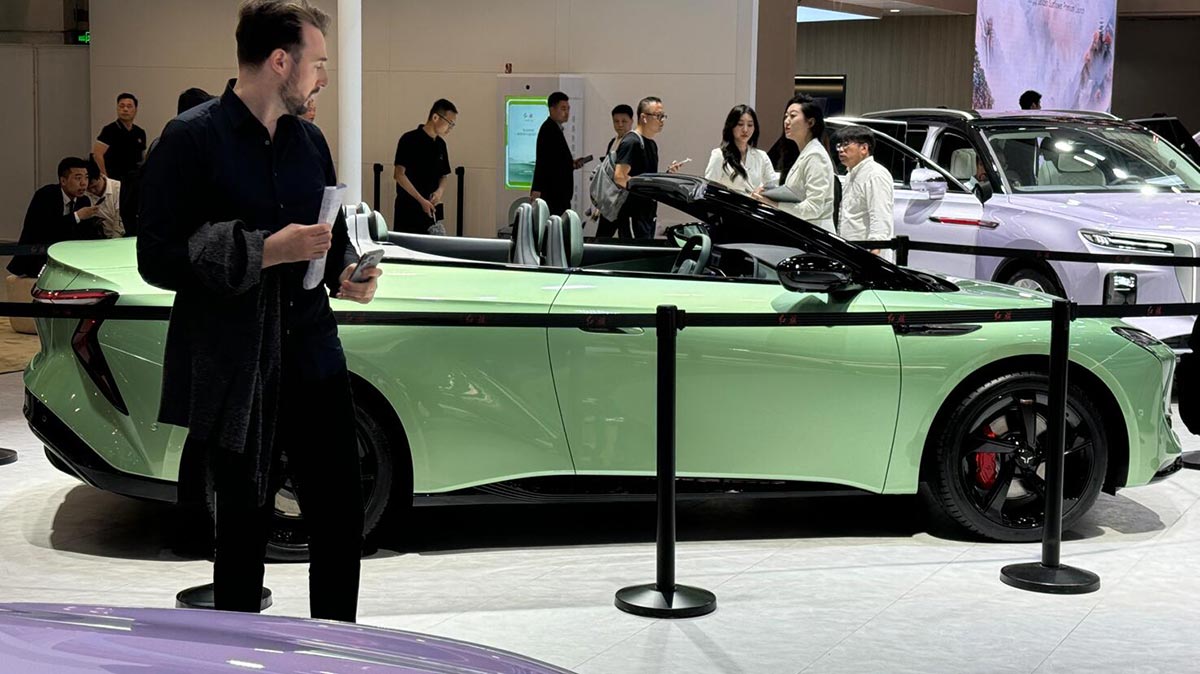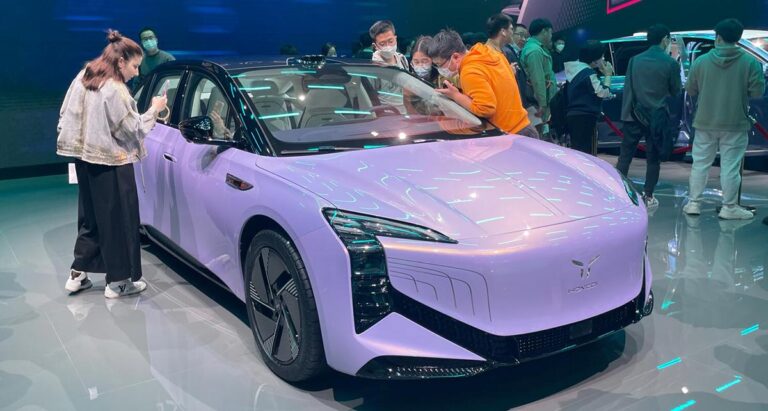China urged the US to immediately correct its wrongdoings, saying the country will take resolute measures to defend its rights and interests.
(Image credit: CnEVPost)
The US government unveiled higher tariffs on several Chinese products, including electric vehicles (EVs), further complicating Chinese EV makers' access to its auto market.
In 2024, the tariffs on Chinese EVs will quadruple from 25 percent to 100 percent, according to a statement today by the Office of the US Trade Representative.
The levy on lithium-ion batteries will increase from 7.5 percent to 25 percent, according to the statement. Tariffs will also rise on products including solar cells, some steel and aluminum.
US Trade Representative Katherine Tai said this is intended to confront China's unfair policies and practices.
A Chinese Ministry of Commerce spokesperson said today that the move was a misuse of the 301 tariff review process by the US out of domestic political considerations to politicize economic and trade issues, according to a statement.
The US side should immediately correct its wrong practices and cancel the tariff measures imposed on China, the statement said, adding that China will take resolute measures to defend its rights and interests.
Prior to the US statement's release, plans for the US to raise tariffs on Chinese products, including EVs, had been widely reported.
China's Foreign Ministry voiced its opposition in press conferences yesterday and today.
"I need to point out that despite its professed willingness to strengthen cooperation with China on climate change, the US has been hyping up the so-called “overcapacity” in China’s new energy sector and vowing to impose additional tariff hikes on Chinese electrical vehicles and solar products," Chinese Foreign Ministry Spokesperson Wang Wenbin said on May 13.
"This is self-defeating. It goes against the consensus reached in San Francisco on joint climate response, and more importantly, it will harm the world’s green economic transition and climate action," Wang said.
"We urge the US to stop repairing and digging up the road at the same time, so to speak, and create enabling conditions for China-US climate cooperation and global green transition," he added.
At today's regular press conference, Wang said China will take all necessary measures to safeguard its legitimate rights and interests.
It's worth noting that the quadrupling of the tariffs on Chinese EVs doesn't seem to have a substantial impact on Chinese EV makers, as the previous 25 percent tariff and the Inflation Reduction Act (IRA) have substantially blocked them out.
From 2023 through March 2024, the US imported $6.89 billion worth of battery electric vehicles (BEVs) from Germany and $6.22 billion from South Korea, according to the US Census Bureau.
For comparison, the US imported only $380 million worth of BEVs from China during this period.

